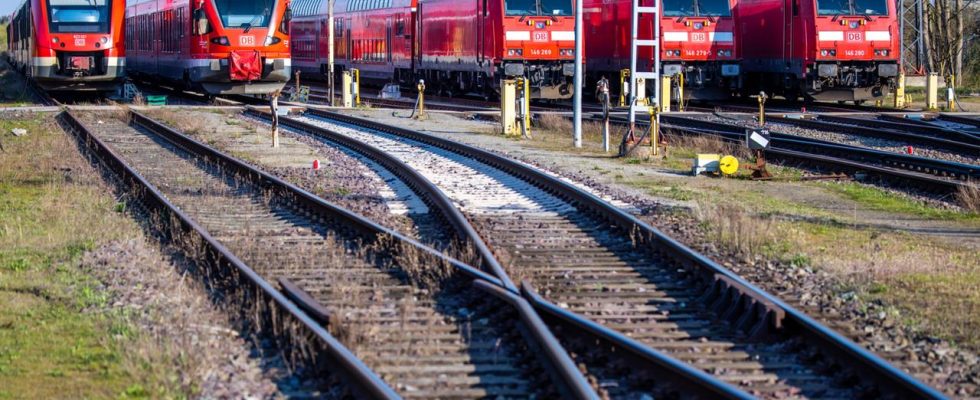The German rail network is ailing – which is not least due to the responsibility for maintenance. With a legal reform, Transport Minister Wissing now wants to give the federal government more leeway for investments.
The state of the German rail network is poor: not only is it heavily used, it is also dilapidated in places. In order to counteract worn railway lines and the resulting unpunctual trains, Federal Transport Minister Volker Wissing (FDP) now wants to promote federal investments in the German rail network.
Specifically, the government should be given more leeway in financing the rail infrastructure. The federal cabinet has now launched a corresponding draft for the amendment of the federal railway expansion law, which is intended to allow greater freedom of action for state investments.
More Freedom of financing thanks to change in law
According to the Federal Ministry of Transport, the previous form of the law has increasingly proved to be an obstacle. The rule applied: “Maintenance is a matter for the railways, but new construction is a matter for the federal government.” This created incentives to neglect sections of the route until they were completely rebuilt by the federal government, explained Wissing. The network must now “get back into shape as quickly as possible so that rail can finally fully develop its effect as a climate-friendly mode of transport”.
Thanks to the change in the law, investments and expansion measures are to be implemented faster, more optimized and also in a bundled manner in the future. In future, the federal government could contribute to the costs of maintenance and repairs – and not just to the costs of construction projects, as has been the case up to now. This will quickly have noticeable effects on passengers, said a spokesman for Wissing.
The new form of financing also makes it possible to implement comprehensive general renovations on particularly busy routes, such as the so-called high-speed corridor between Mannheim and Frankfurt. The entire route is to be repaired there in one go in 2024. The federal government also pays for this in places for which the railways would actually be responsible.
“The first step in the promised rail reform”
Dirk Flege, Managing Director of the Pro-Rail Alliance, welcomed the change that had been initiated: “The amendment to the law is the first step in the promised rail reform. Until now, the federal government’s responsibility for financing has stopped at the edge of the platform.”
Federal funds could now also be spent on waiting rooms in train stations or for monument protection. “These are improvements that will reach people in the coming years. The pressure on Deutsche Bahn AG to sell ‘unprofitable’ station buildings is finally being reduced,” explained Flege.
Criticism from the traffic light partners
The planned changes are closely related to the intended establishment of an infrastructure division within Deutsche Bahn AG that is geared towards the common good. On January 1, 2024, DB Netz AG and DB Station und Service AG are to be merged. The income from this new company should then benefit the infrastructure.
SPD parliamentary group deputy Detlef Müller is not enough: “There is still a lack of clarity about how the ministry wants to set up the financing and decision-making structures of society in such a way that the expansion and repair of the rail network finally gain momentum.”
The Green Railway politician Matthias Gastel is also pushing for a more comprehensive reform: “With his proposals, Wissing threatens to fall far short and miss central reform goals.”

